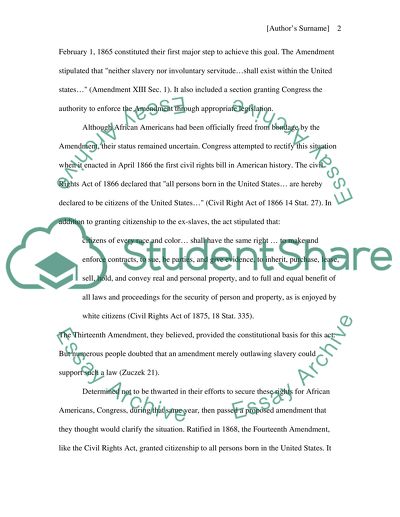Cite this document
(“The Thirteenth Amendment: The abolition of Slavery Essay”, n.d.)
Retrieved from https://studentshare.org/history/1395704-the-thirteenth-amendment-the-abolition-of-slavery
Retrieved from https://studentshare.org/history/1395704-the-thirteenth-amendment-the-abolition-of-slavery
(The Thirteenth Amendment: The Abolition of Slavery Essay)
https://studentshare.org/history/1395704-the-thirteenth-amendment-the-abolition-of-slavery.
https://studentshare.org/history/1395704-the-thirteenth-amendment-the-abolition-of-slavery.
“The Thirteenth Amendment: The Abolition of Slavery Essay”, n.d. https://studentshare.org/history/1395704-the-thirteenth-amendment-the-abolition-of-slavery.


